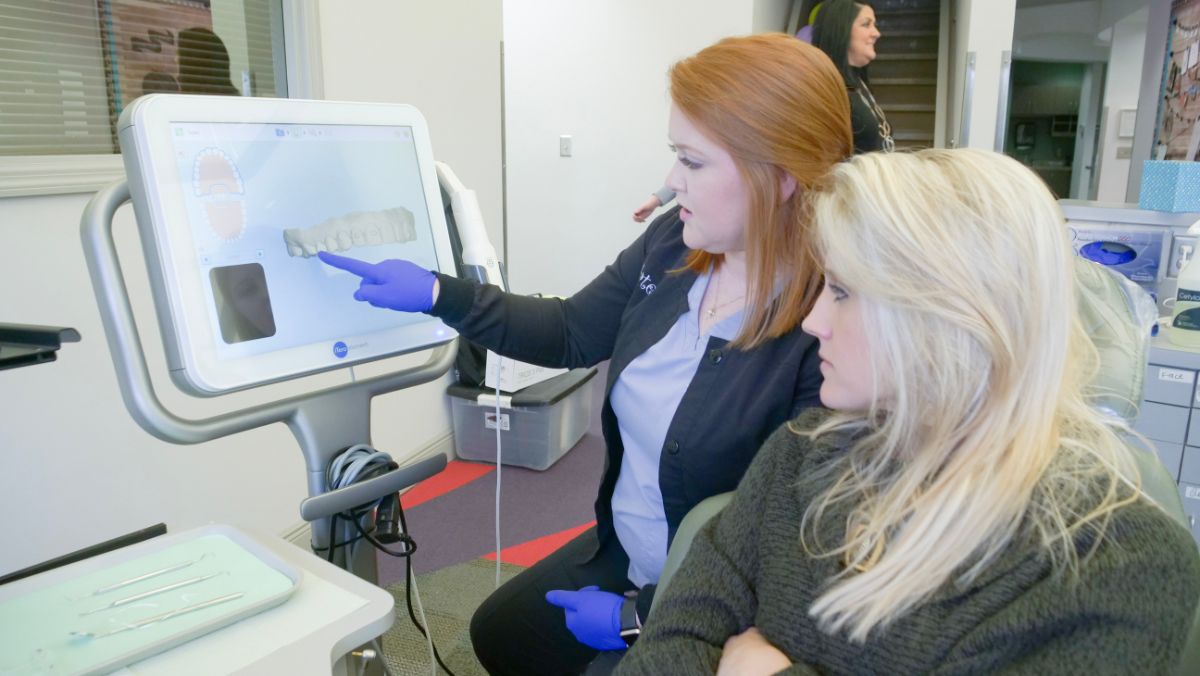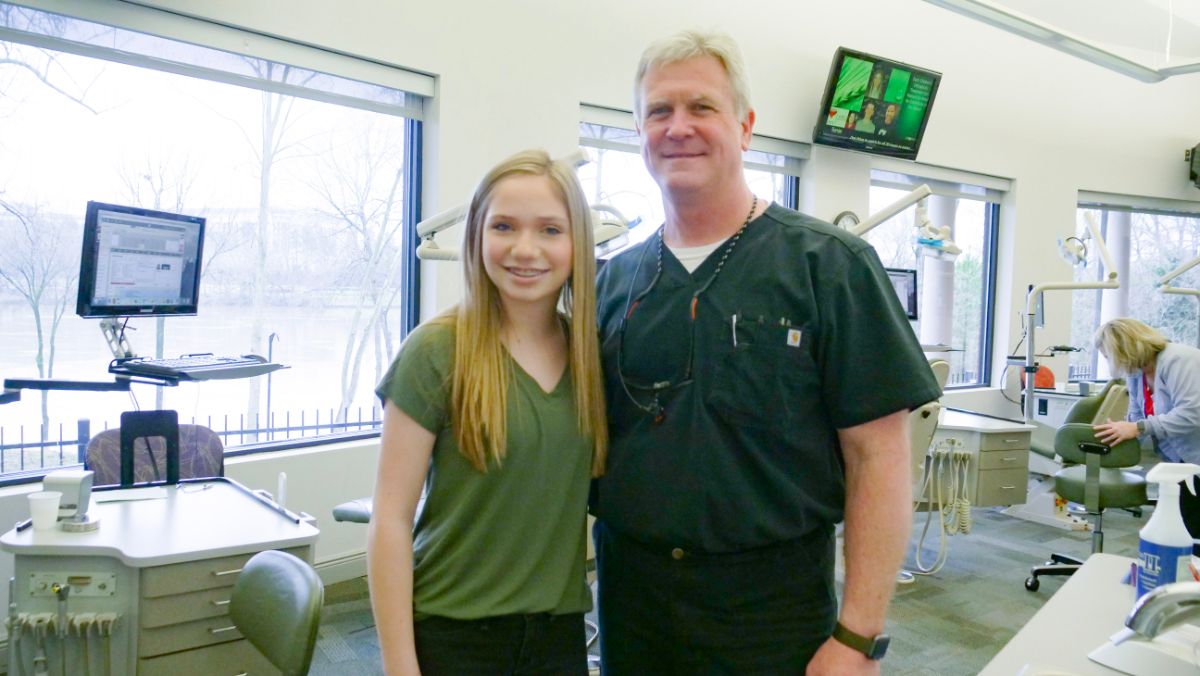Did you know that tooth enamel is the strongest substance in the human body? It’s even stronger than bone! However, this doesn’t mean our teeth are invincible. While every other tissue in our bodies can repair itself, our teeth lack that ability. That means that any time a tooth or teeth are damaged in any way, they’ll need the care and attention of a skilled orthodontist to be corrected. Damage to your mouth during orthodontic treatment can alter your cosmetic appearance and cause other painful and costly oral health issues. When our RiverView Orthodontics patients plan on playing sports with braces, there’s the added worry of damaging your appliance.
One of the most common topics we discuss with our patients is if braces treatment will affect their ability to play sports or leave them on the sidelines for the season. Here at RiverView Orthodontics, you can continue playing any sport you’d like, as long as you take a few steps for added protection for your teeth and appliance. The best way to keep your mouth safe during sports or other physical activities is by wearing a mouthguard. There are multiple varieties of mouthguards available, including orthodontic and non-orthodontic models, all of which provide great protection for your mouth.
Both of these types of mouthguards have their pros and cons, so let’s take a closer look at the differences between the two. We’ll also talk about when you should wear your mouthguard and give you some tips on how to care for the one you choose. Keep reading below to learn more!
Standard Mouthguards vs. Orthodontic Mouthguards
Mouthguards are the most effective tool for protecting your smile while participating in sports and other physical activities. Whether you play high-contact sports like football and basketball or light-contact sports like baseball and volleyball, we recommend that you wear a mouthguard at all times, even during warm-ups.
While both regular and orthodontic mouthguards offer protection for a patient in braces, there are some important differences to be aware of. Regular mouthguards are made of thermoplastic which means they are designed to heat up in the mouth and then mold around the teeth. If you wear braces, the material will mold around the brackets as well, which can be an issue for a few different reasons. If the molding fits too well around the brackets, the force of a blow can potentially knock the brackets right off the teeth, leading to a potential increase in treatment time and more orthodontic visits.
This kind of molding doesn’t allow for movement of your teeth, either. Since this is what orthodontic treatment is actually working to achieve, a non-orthodontic mouthguard can work against your progress in this way. These mouthguards will also need to be replaced more often to keep up with the shifting of your teeth throughout the treatment process.
Orthodontic mouthguards are designed differently. They’re made from a high-grade silicone that cushions the lips from bumping and rubbing against the teeth. This is an important feature since it can be extremely painful to get your lip caught up in a bracket during a blow or a fall. This can cause swelling, and may even require help from Dr. Upton to release it.
Orthodontic mouthguards are built with these particular needs in mind. They protect the brackets on the teeth and soften any hit they may take. To accommodate for your braces, they are slightly larger than regular mouthguards. However, they are just as comfortable to wear and won’t prevent you from talking.
There are also over-the-counter mouthguards designed specifically for athletes in braces that can be purchased online or in select sporting goods stores. These include well-known brands like ShockDoctor, Gladiator, and Vettex. Although these tend to be a bit pricier than regular mouthguards, we believe the extra cost is worth the additional comfort and protection they provide. And while nothing can beat a customized orthodontic mouthguard, we would still recommend these over regular mouthguards (and a regular mouthguard over nothing at all!)

When should mouthguards be worn?
If you wear braces and play a contact sport, a mouthguard should be worn at all times. That includes warming up, during practice, and throughout the game. Injuries can happen in the most unexpected ways and are something to avoid at all costs. We recommended wearing a mouthguard just as frequently with non-contact sports, although obviously the risks are not as high if you fail to do so.
For patient’s wearing Invisalign, consider taking your aligner out and replacing it with a tight-fitting mouthguard to protect your teeth better when you play. Aligners can fit a little more loosely than a mouthguard because they allow for the shifting of teeth into their correct positions. If aligners are removed, they should always be placed somewhere clean and safe, and put back in as soon as the practice or game is complete.
How to care for your orthodontic mouthguard
Orthodontic mouthguards can last quite a long time if you take proper care of them. Since bacteria can easily grow on mouthguards, you should be vigilant about cleaning yours every time you take it out. We recommend using a soft toothbrush and toothpaste to gently clean the inner and outer surface. An antimicrobial solution can also be used for a bacteria-killing rinse. For a deep clean, you can leave your mouthguard soaking overnight in a glass of water with a denture cleaner tablet. Remember to always keep your mouthguard in a case when you’re not using it!

RiverView Orthodontics is here to keep your smile safe!
Orthodontic mouthguards are the best way to ensure your teeth stay safe even when you’re participating in sports. Accidents happen and sometimes damage is unavoidable, and in these cases, we encourage you to contact Dr. Upton right away so he can address the situation and decide what the best course of action would be.
Here at RiverView Orthodontics, we’re dedicated to helping you continue all your normal activities while you’re in braces, including playing sports. To learn more about safely playing sports with braces, reach out to our office anytime. We’d love to help you find the best orthodontic mouthguard for your smile and your sport!
